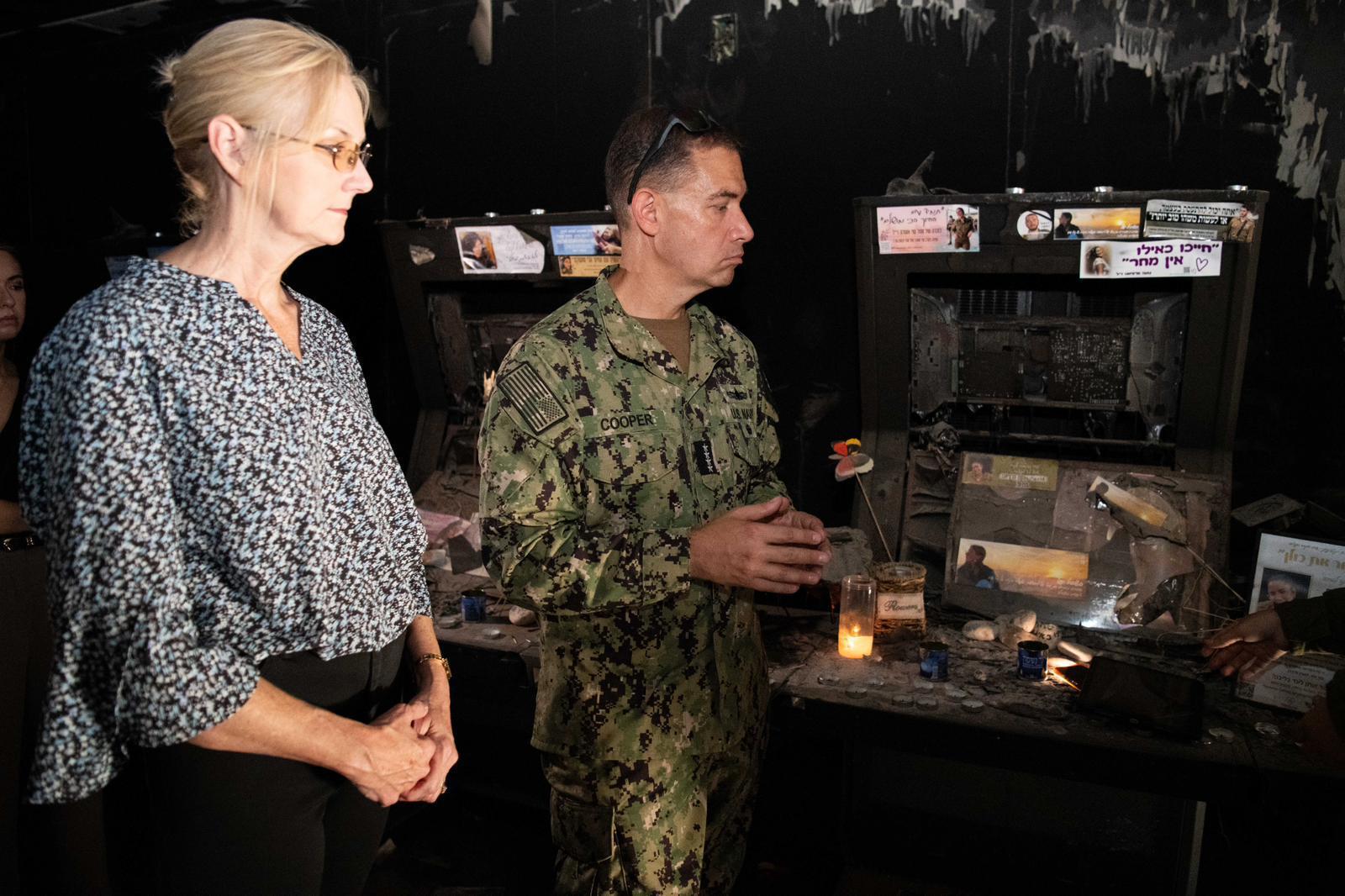New US CENTCOM Chief Cooper meets IDF chief, affirms 'ironclad commitment to Israel’s security'

New U.S. Central Command (CENTCOM) Chief Adm. Brad Cooper met for the first time on Saturday with the Israeli military’s Chief of Staff Lt.-Gen. Eyal Zamir to discuss challenges and threats from Iran and its regional terrorist proxies – Hezbollah in Lebanon and the Houthis in Yemen.
“The United States maintains an ironclad commitment to Israel’s security,” Cooper stated. “We are mutually dedicated to promoting regional security and stability."
The meeting reportedly also focused on strengthening the already close and solid cooperation between the U.S. and Israeli militaries.
Hezbollah and the Houthis joined the Iranian-led multi-front attack on the Jewish state following the Hamas Oct. 7, 2023, massacre of 1,200 Israelis.
Hezbollah fired thousands of rockets and drones into northern Israel, killing dozens of Israelis and temporarily displacing tens of thousands of residents from northern Israeli communities. Israel responded by severely degrading Hezbollah’s military capabilities, killing thousands of Hezbollah operatives and eliminating most of Hezbollah’s top leadership including Hassan Nasrallah.
In November 2024, a severely weakened Hezbollah reluctantly accepted an internationally brokered ceasefire with Israel.
Before becoming the new CENTCOM commander, Cooper played a central role in the U.S. military operations against the Houthis earlier this year.
Cooper who heads the U.S. forces in the Middle East region, has been involved in ongoing efforts to disarm Hezbollah’s military force and transfer the control of all Lebanese territory to the Lebanese Armed Forces. The disarmament of Hezbollah has been a key Israeli demand for withdrawing the remaining Israeli forces from five key border sites inside Lebanese territory. The United States and the new Lebanese government have also demanded that Hezbollah disarms for the sake of regional stability.
However, Hezbollah’s current leader, Naim Qassem, last month rejected the demand that his terrorist group disarm. Qassem warned that “anyone calling today for the surrender of weapons, whether internally or externally, on the Arab or the international stage, is serving the Israeli project” in the region.
“The imminent danger is the Israeli aggression… this aggression must stop,” Qassem claimed, failing to mention that it was Hezbollah that attacked Israel on Oct. 8 2023.
“All political discourse in the country must be directed toward stopping the aggression, not toward handing over weapons to Israel,” he added.
Hezbollah has warned that the Lebanese government’s Washington-backed plan to disarm the Iranian-backed terror group would lead to bloodshed and potential new civil war in Lebanon.

Cooper and Zamir also discussed the continued threats and challenges from the Iranian regime and the Houthis in Yemen.
“Our response depends on the Iranians,” Israeli Prime Minister Benjamin Netanyahu recently said during an interview with the popular Arab affairs Telegram channel Abu Ali Express.
“We will act according to the threat that comes from there. If they have any sense, they would do well not to bring this situation upon themselves,” Netanyahu warned Iran.
The Iranian ayatollah regime and its terrorist proxies openly call for Israel’s destruction.
In June during Operation Rising Lion, Israel severely degraded much of Iran’s ballistic and nuclear capabilities, and eliminated most of Iran’s top military leadership.
Israel recently eliminated much of the Houthi top leadership as well, including its prime minister, in an aerial strike close to the Houthi-held Yemeni capital Sana'a.

The All Israel News Staff is a team of journalists in Israel.
You might also like to read this:

















